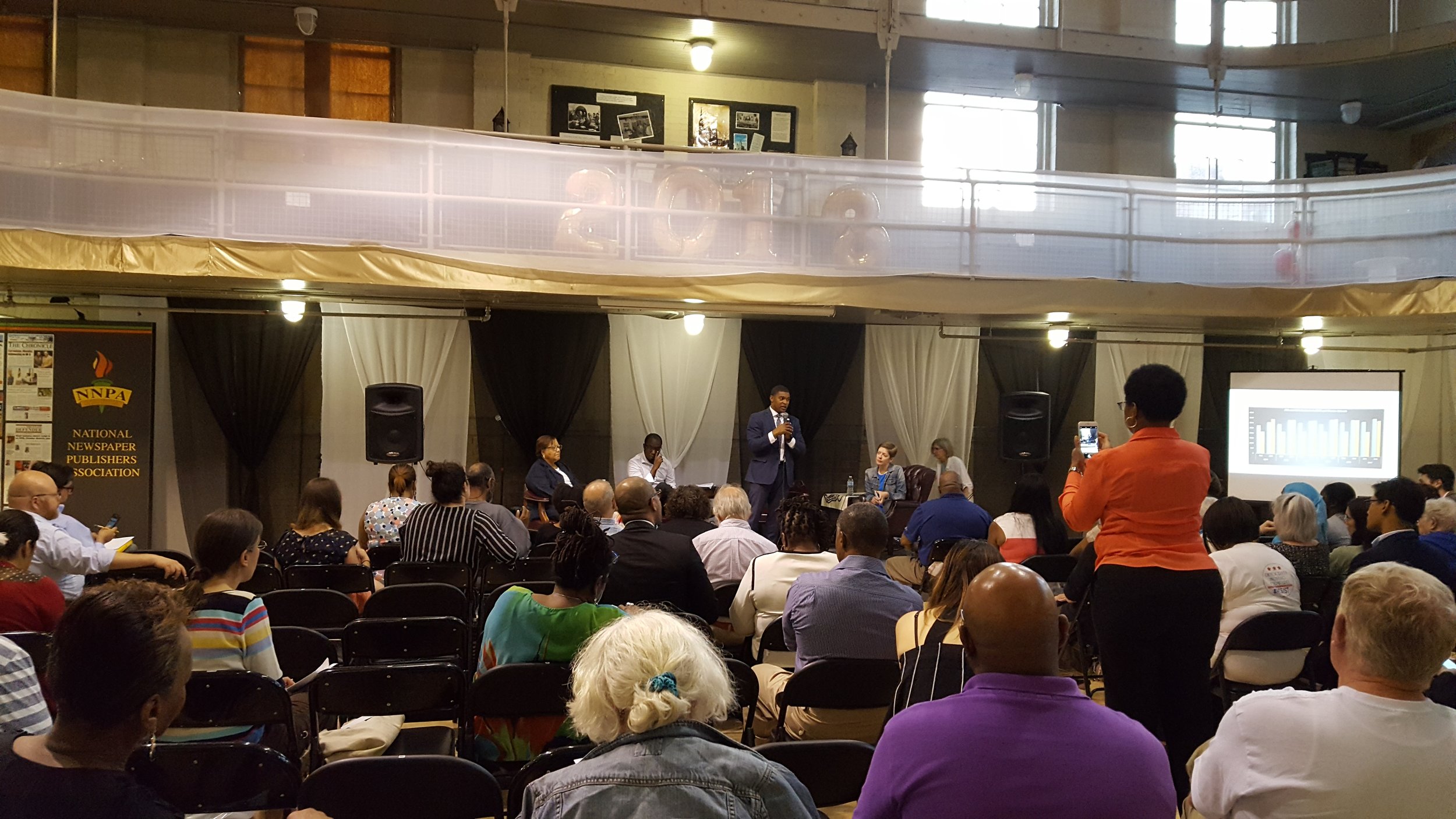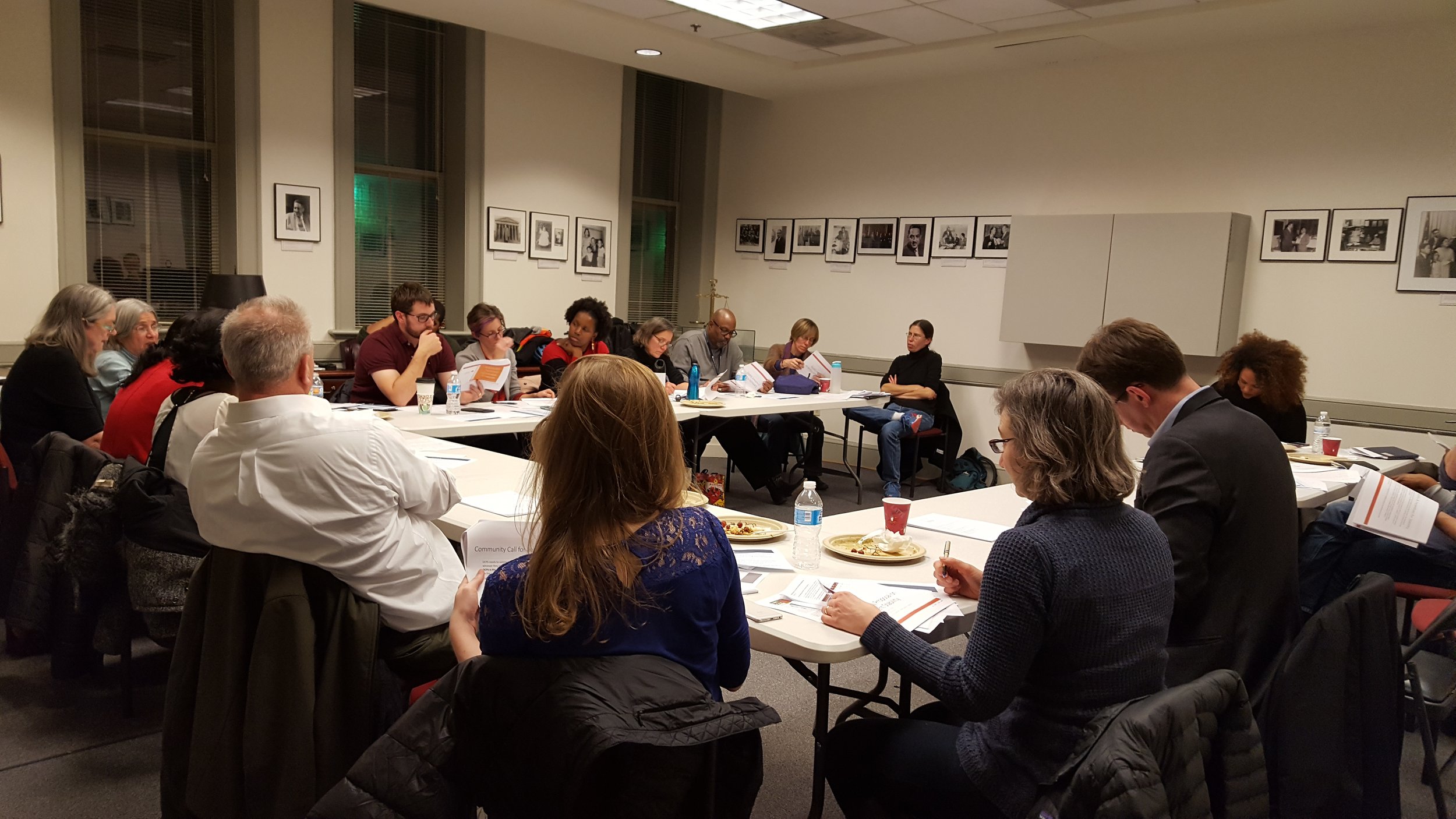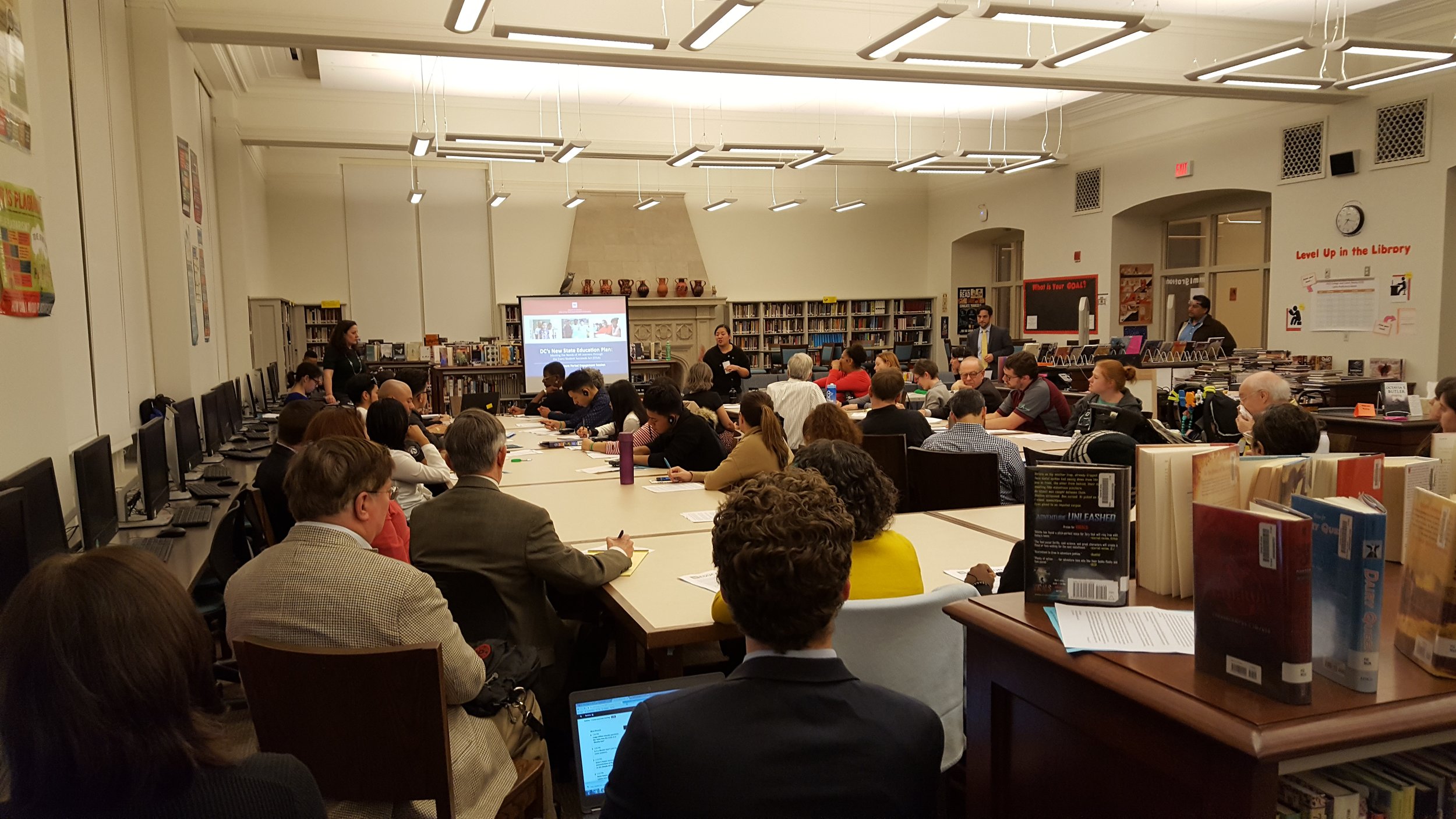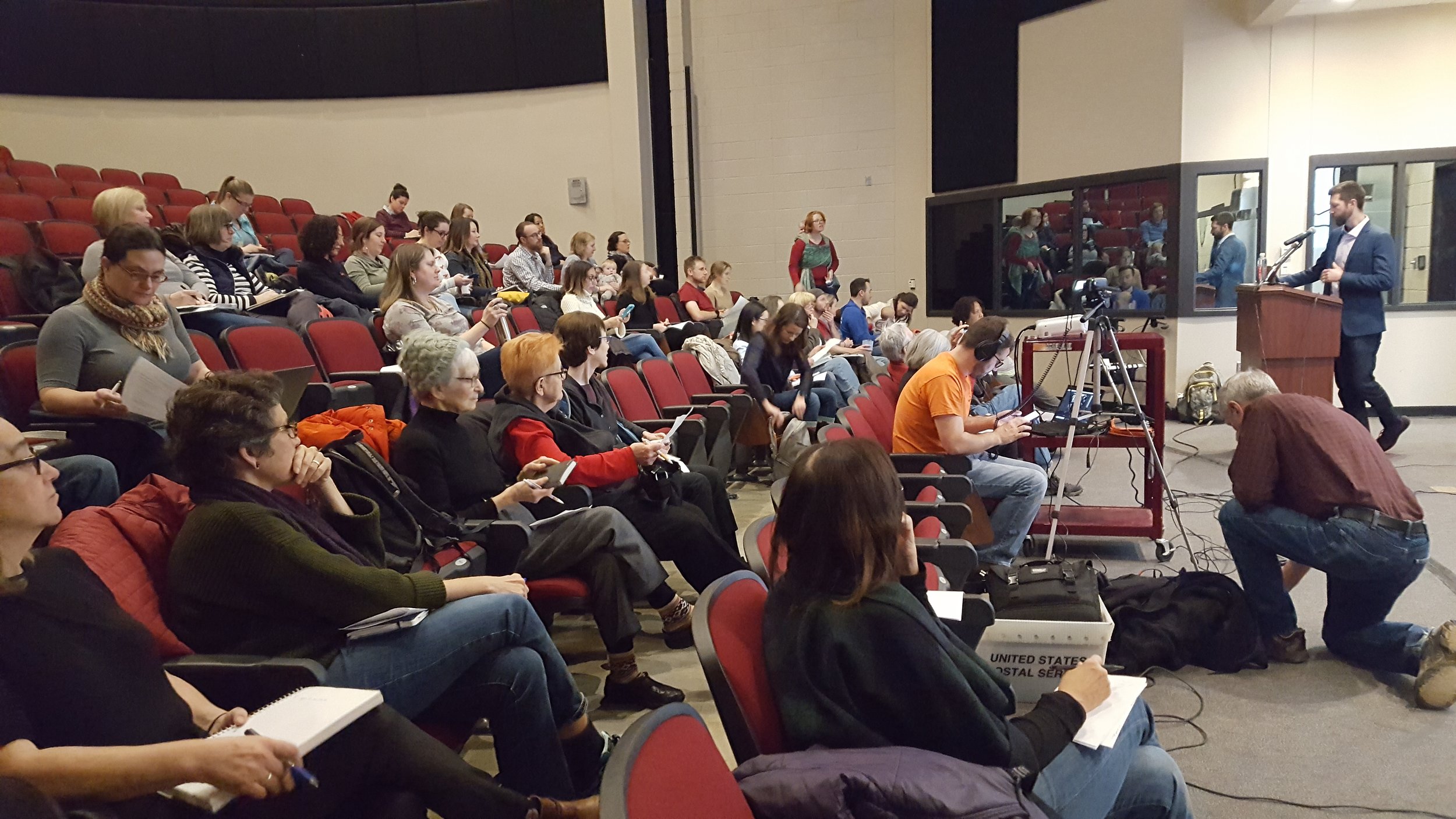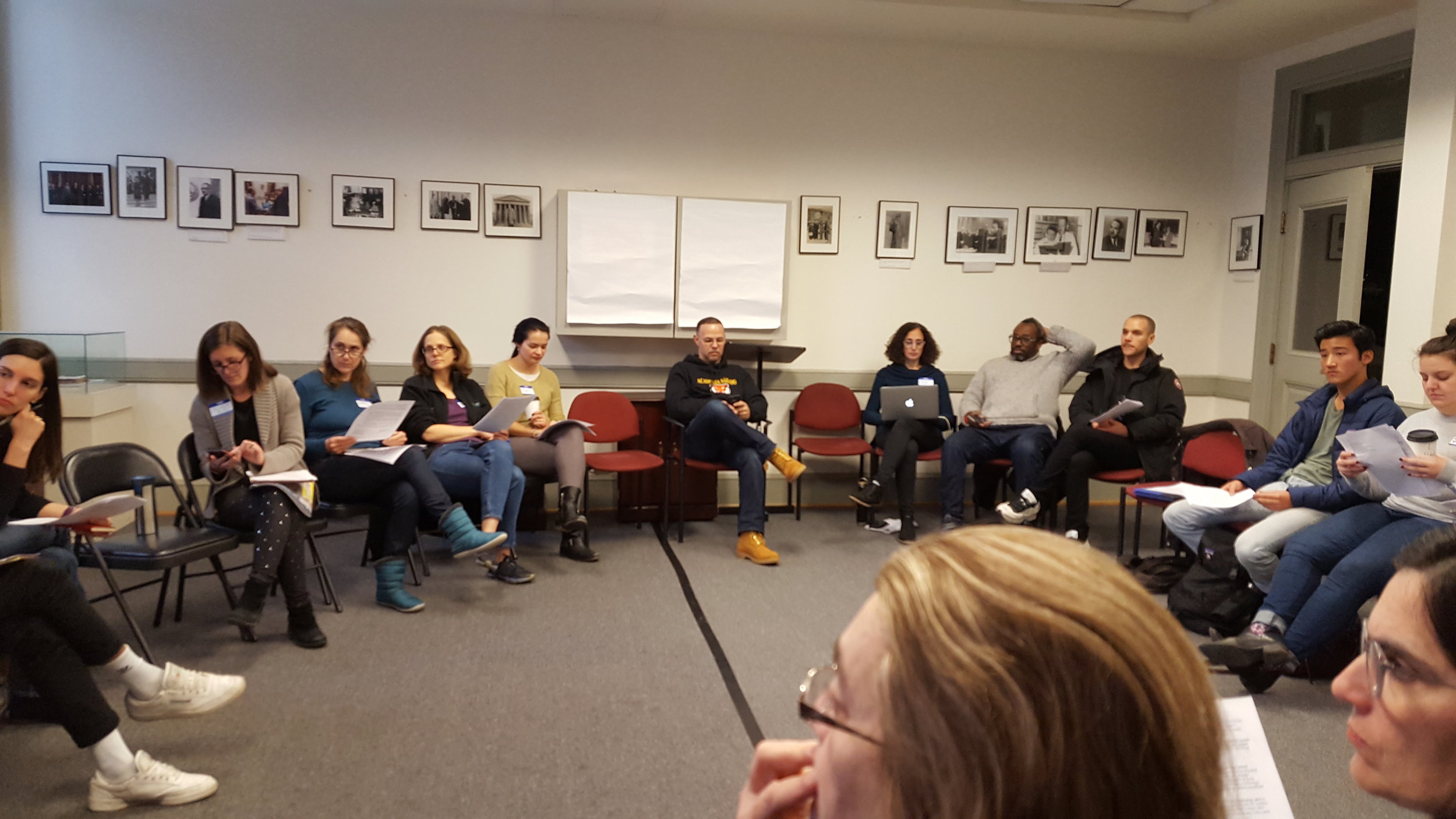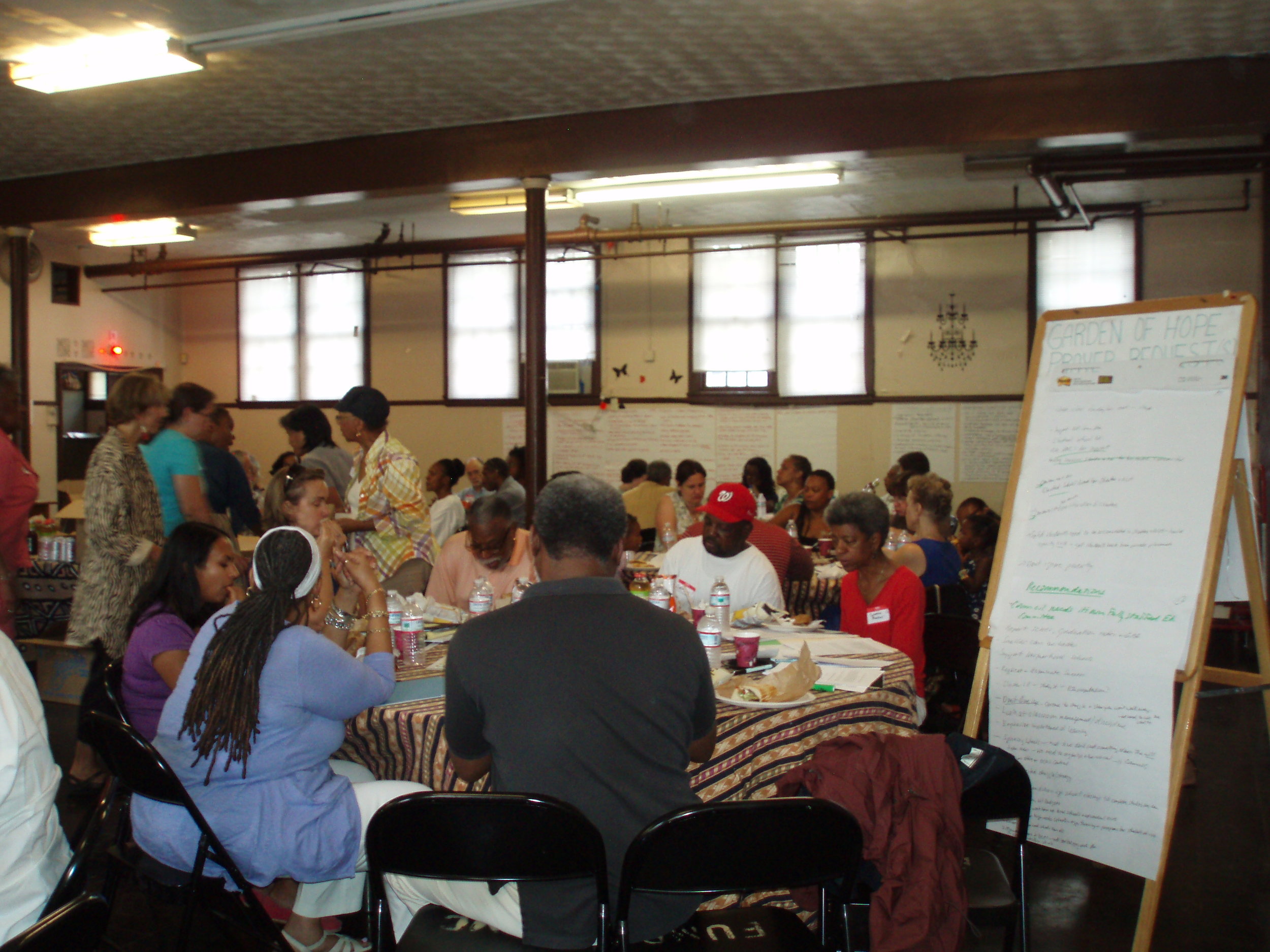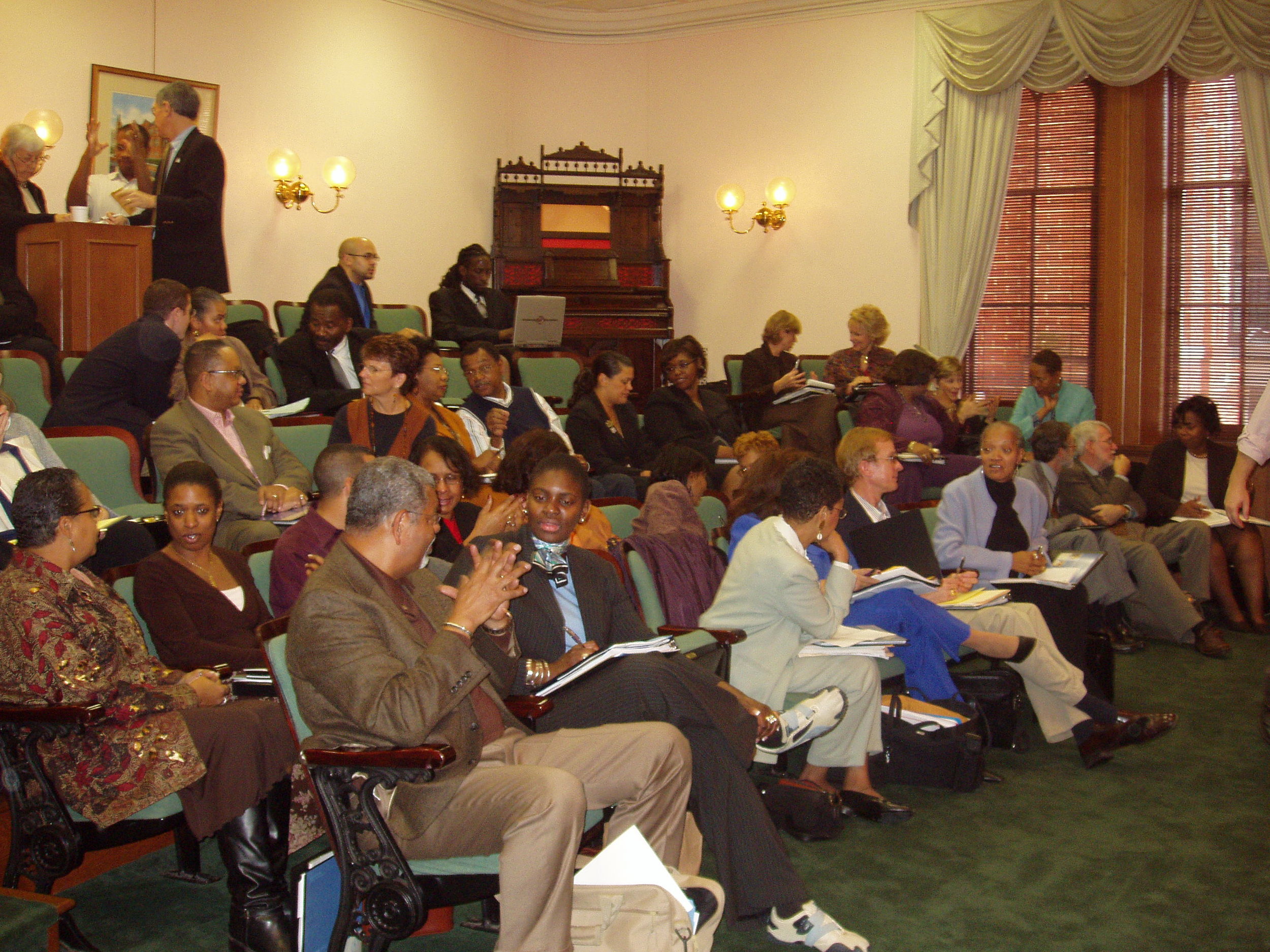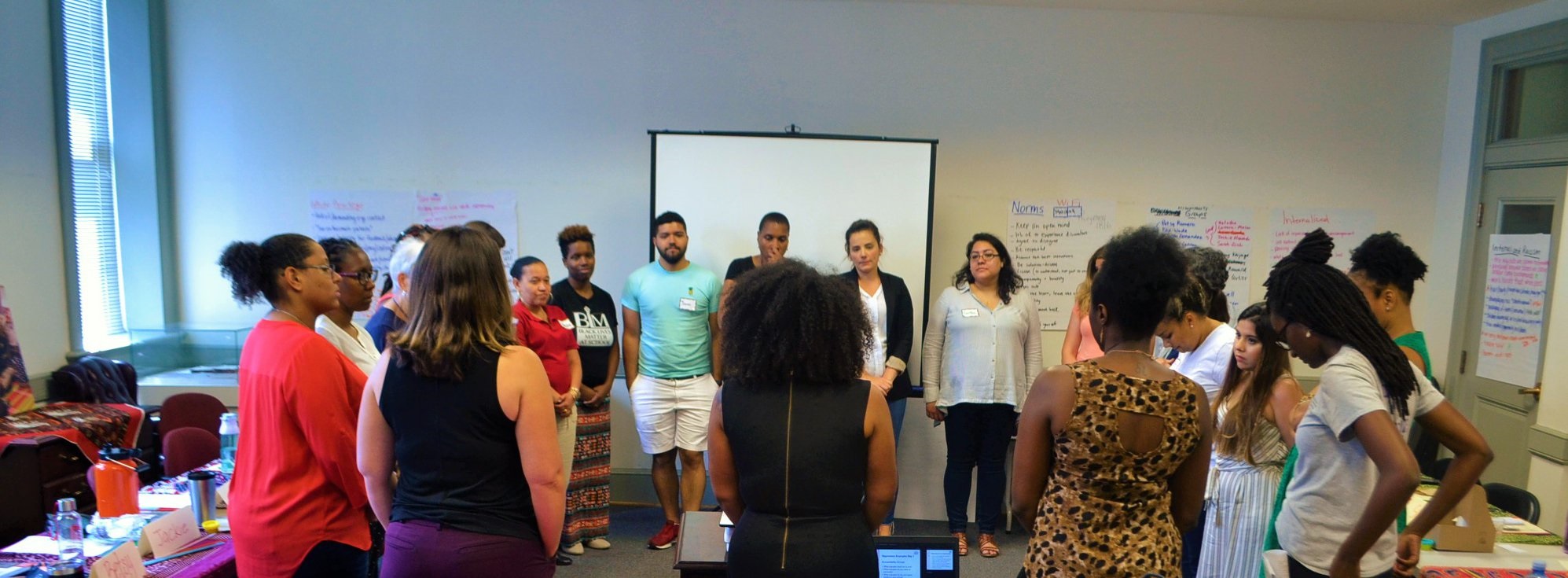Valerie Jablow testimony on Fairness in Use - bill 24-0554
/I am Valerie Jablow, and as a DCPS parent and taxpayer who has for years encountered secrecy regarding even the most basic aspects of our publicly funded schools, I cannot emphasize enough the need for bill 24-0554, “Fairness in use and negotiations for all recreational property”—and for extending public scrutiny around contracts, leases, agreements, and other legal ties with private entities for ALL DC’s public spaces and buildings, particularly DCPS buildings.
Consider how in less than 8 years, Mayor Bowser has repeatedly and unilaterally written the public out from its own public school assets:
--demolished more buildings for DCPS schools of right (Shaw, Marshall, now Winston) than many (possibly all) of her predecessors;
--closed Washington Met and subsequently leased it to Howard without public process;
--seized a field from a DCPS high school (Duke Ellington) to assuage public outcry over the privately executed lease of another public field to a private school;
--signed over for 15 years a public school building (Old Hardy) to a private school (Lab) without any notice to the public;
--increased and promoted seats of choice over seats of right without any public process and often directly against public wishes (creation of Bard; expansion of Banneker; putting large percentages of citywide seats at new schools of right (Center City, MacArthur, Foxhall); demolishing Winston for citywide programming run by publicly unknown actors; and privatizing education services at the former public school site of Marshall elementary, while not explaining whether the same privatizing will occur with Old Miner & Old Randle Highlands); and
--pushed out former schools of right directly to the charter sector (Spingarn, Wilkinson) without public involvement and against public wishes.
Given this record, it should come as no surprise that the leasing and contracting of DC’s public spaces advantages private entities over the public at nearly every step. Whether with lease terms (and entire leases) kept from public review; leases that turn public spaces into private ones without public knowledge or consent; and private deals negotiated for public spaces without public desire, need, consent, or value taken into account meaningfully (or at all), DC taxpayers are almost always late to a party that they are, in fact, paying for. Electing a mayor once every 4 years does not undo this persistent and widespread civic insult.
Below, I have outlined many examples of the problems—and some solutions.
1. The taking of Duke Ellington HS’s field to provide a public benefit in response to advantaging a private school by leasing Jelleff without public scrutiny is a terrible precedent that should not be allowed to happen again. The taking of Ellington Field literally allows the executive to take away ANY DCPS asset (cafeterias, gyms, libraries, fields, etc.) for any purpose as long the executive declares that purpose “public” (no matter how specious that label is). That disadvantages the entire school system to serve private purposes.
There needs to be legal assurance that ALL DCPS assets are in perpetuity reserved for DCPS and not taken away for other uses, private or public, by the executive outside of substantive public review and approval.
2. Neither DGS nor the deputy mayor for education (DME) has been forthright with regard to DCPS spaces not currently in use as active schools, thus enabling their use outside public purview. Consider that there is no plan publicly outlined for any DCPS swing spaces (Davis, Emery, etc.) beyond their mention on the capital plan—which means that anything can happen to them after their time as swing spaces, without regard for public need or desire. Consider also that there is no clearly available record of public feedback on Winston—despite its RFO in 2017 and the recent announcement of its demolition. And despite deep public need for citywide DCPS swing space and programming capacity, the closed Wash Met school was leased without public scrutiny for 5 years to Howard.
There needs to be ONE publicly available, and annually updated, outline of every DC-owned public school building in DC (open, closed, former, swing space, rented, etc.); what it is currently used for; and what the plans for it are in 1 year; 3 years; 5 years; and 10 years. (This is not, nor ever has been, included in the master facilities plan or any of its annual supplements.) In addition, all leases of any duration of any DC-owned DCPS spaces (former, current, inactive, etc.) should be subject to public scrutiny before and after they are signed and available for public scrutiny at all times outside of FOIA, regardless of the lease rates or their duration. This, too, has never been part of the master facilities plan.
3. DPR has not been, and continues to not be, a trustworthy or credible partner with regard to public assets under its control.
In the hearing for this bill on March 30, 2022, DPR director Hunter characterized Ellington field as a “glorified dog park” since the late 80s and early 90s. This is not merely news to the Georgetown University track team, whose long-term use of the track was renewed by DPR as recently as September 2021 (see the video here at the 1 hour, 22 minute, 55 second mark)--but it is also insulting to thousands of Duke Ellington HS students and faculty, who used the field and took good care of it for that time for credited programming at the school.
In fact, since the taking of the field, Duke Ellington HS parents like me have fruitlessly appealed to DPR and the DME for an actual use agreement that prioritizes our school at our former field. We still have none.
In addition, as someone whose kids attended a DCPS school (Watkins) with a co-located DPR rec center, I can attest that DPR was NOT a good partner; limited the school’s use of the facility; and took terrible care of it. The sheer volume of trash alone every week during football season was stunning—most of which was created by the use of the field through DPR’s programming/leasing on weekends.
Sadly, DPR’s neglect of the public sphere goes well beyond my experience with Watkins (in W6) and Duke Ellington (in W2). The Marvin Gaye playground in W7 has serious issues. The redevelopment of the Ferebee-Hope rec center in W8 by a private entity (KIPP DC) under DPR and DGS purview has left residents with a poor facsimile of what they previously enjoyed. In W7, the Fort Dupont ice arena agreement has been violated such that the arena’s groundbreaking programming is completely threatened. And as DPR redevelops the Marshall elementary site at Fort Lincoln in W5, the public continues to have many basic questions and few answers from DPR—a stunning development for a $39M project slated to be finished in 2 years.
Finally, the response of Director Hunter during the 3/30/22 hearing (at the 3 hour 14 minute mark in the video here) about leases of DPR properties to private entities speaks volumes about the apparent contempt his agency has for the public. The only such list I have is from 2019 (linked here). As you can see, it doesn’t outline the conditions, prices, or rationale for what appear to be ridiculously long leases (almost 1000 years in one case), such that public benefit is completely hidden (and may in fact be nonexistent).
Possibly worse, that 2019 list differs from the one Director Hunter listed during the hearing (i.e., the one he gave at the 3/30/22 hearing left off Deanwood, Capper, Chevy Chase, and Capitol Riverfront, even though the Deanwood lease was not expired, and added several new ones whose lease terms Hunter did not appear to share publicly).
DPR needs to have a public-facing list of ALL contracts, leases, agreements, and other binding documents for all public spaces & buildings under its purview that includes all the terms of those documents, their rationale, and the public benefit. In addition, DPR needs to have regular public review of its asset management beyond council budget and performance oversight hearings.
4. The process for re-use of closed and surplused DCPS schools and other public spaces is tilted against the public. Consider that Winston was put up for RFO in 2017, when the public weighed in with all sorts of feedback regarding re-opening it as a DCPS school or some use that was not a charter school. Yet, despite the public’s desire, nothing happened until it was announced that it would be demolished and a program put in that the W7 council member noted (at the 3/30/22 budget oversight hearing, at the 6 hour, 47 minute 30 second mark) that he has NO idea of and had no input on! Similarly, when Gibbs was put up for RFO, W6 community members attended public meetings in huge numbers and specifically asked for it to not re-open as a charter school. The best they got was a promise to see offers of charter operators. Plans to privatize Spingarn were also announced literally out of the blue—and without one public meeting.
Current DC code covering this is inadequate for public purposes and permits the advantaging of private entities, all the while DC’s appointed leaders of various agencies (DME, DGS, DPR, DCPS) pretend that unilaterally declaring a use for public facilities and only afterward soliciting public feedback is actual public engagement.
There needs to be substantive community meetings and public discourse BEFORE any private offers or new uses are proposed for closed and/or surplused DCPS school buildings and other public spaces. The public discourse also must be clearly and obviously taken into account for any future plans or uses and must be clearly part of the public record at every step going forward, with public consent at every step.
5. Like DPR, DGS has enabled public resources to be used for private entities without adequate (or sometimes any) public scrutiny or value.
Consider that DGS recently allowed a developer to rent public park space without any notification to the public—for $1/month for 3 YEARS.
In addition, DGS appears to not be doing its statutory duty to have all DC agencies weigh in for any use of a closed DCPS building or other public space before it’s put up for RFO or private lease. I have attended many public meetings regarding re-use of closed DCPS schools—and DGS has NEVER said what exactly it has done to check in with DC agencies and their need for the spaces. The best admission I got was that no agency came forward to state its need for the space—which is completely backwards.
That lack of oversight is also devastating for residents, given that DC struggles with an increasing population of people with housing insecurity. Giving over huge public spaces like Ferebee-Hope and Spingarn for charters—when we have a decreasing student population by the DME’s own estimation—amounts to grotesquely turning away from our most vulnerable residents to ensure private profit by way of public assets.
There needs to be public sunshine on the duty of DGS to prioritize the use of public buildings and spaces by public agencies and for public purposes, with the agency affirmatively and in a public manner setting out lists on a monthly basis of public spaces and buildings that it intends to lease to private entities and circulating that list to all DC agencies, with a solicitation of their interest and the responses from those agencies publicly noted and acted on.
6. The renewing/rejiggering of lease terms of closed DCPS schools is done at the behest and advantage of private entities, and the public is either left out completely or included only as a "by the way.”
We saw this firsthand when Mayor Bowser promulgated a 15-year lease renewal for Old Hardy on December 24, 2020 to the Lab School—with utterly no public oversight and with terrible consequences for DCPS school planning. (Not to mention that I was unable to find any of its leases on any public website—I obtained the renewed lease only by asking a DC resident, who shared it with me here.)
That was hardly singular.
Consider what happened with lease extensions for Gibbs & Shaed, which were promulgated at the request of the leaseholders of those publicly owned buildings to aid their private financing on both buildings (which currently house charter schools):
—There was nothing about the schools’ leases in DC’s legislative database. At the (only) public meeting for the lease extensions on December 15, 2021, DGS said that the signed leases were for 20 years—and that the law at the time of their signing stated that all leases 20 years and less required no council oversight (hence nothing in the database). Since then, DC code was amended, to require council oversight for all leases over 15 years.
--Also at the time those leases were signed, there was no requirement for public disposition of these school buildings (now required per DC code section 10-801). But council approval of charter leases and DCPS school disposition even under current code is too long, as in 15 years there can be 2 or more charters in one school building.
--At neither the December 15, 2021 public meeting nor in the legislative database was there anything outlining what the leaseholders or schools themselves had spent in renovations (for which the leaseholders are getting rent abatement), and nothing outlining the fiscal relationship between the leaseholders and the charter schools in these buildings because those are, per the leaseholder’s rep, “confidential business terms.” (See the discussion starting at minute 54 in the meeting video here) Thus, there is literally no way anyone in the public could possibly know the public benefit (or not) of these lease extensions.
—The day before the 12/15/21 public meeting, at my request DGS and DME provided the original leases for both school buildings. But they did not provide the OTHER leases and user agreements associated with these two properties, which are central to the decision making now and thus to public scrutiny of it. (Here they are for Gibbs (lease, LOI, sublease) and Shaed (lease, LOI, and sublease), most of which I obtained by FOIA after the meeting.)
So it is that the ONE public meeting for the Gibbs and Shaed schools being used by private entities concerned items that very few, if any, DC taxpayers had ever seen; had any oversight about; or could understand the public benefit of—and the meeting itself was only for legislation specifically designed to benefit private entities.
The public needs access to all leases and agreements for each public space without resorting to FOIA. In addition, given high costs and demand for school facilities, the DC council needs to ensure that NO leases longer than 1 year are signed for former DCPS buildings without substantial and ongoing public review of the leases themselves; any renewals or extensions; and any and all subleases and agreements, while the public and fiscal benefit for each is clearly outlined.
7. DC code 38-1802.09 allows the chancellor to pull back Old Hardy for DCPS if it’s needed. That provision is there specifically for all school buildings not declared surplus, to address overcrowding in DC’s school system of right and thus to ensure education rights are preserved in all quarters of the city.
But even though by DCPS’s own measure the Wilson/Jackson-Reed feeder system is overcapacity, the chancellor did not pull Old Hardy back into active use. This means that expanding capacity in W3 schools will result in huge capital expenditures, while a private school is advantaged—all at the mayor’s behest and without public scrutiny.
The renewal of Old Hardy’s lease to the private Lab School also ignores the reality that DCPS spaces are needed even when those spaces are not actively used as DCPS schools. The reason is that DCPS schools are designed to be IN the communities they serve. Imagine the civic damage if DC had closed, and then completely disposed of, schools like Van Ness, Maury, Francis-Stevens, Garrison, Peabody—all of which were slated to be closed at some point and are thriving and important community assets.
But you don’t have to imagine that:
Because right now, plenty of communities across DC no longer have ANY school of right close by due to dozens of closures and conversions to charters since 2000.
Because of those closures and conversions, most communities in wards 5, 7, and 8 no longer have enough seats of right to accommodate the students who live there—and who are entitled by law to those seats. Those communities have thus not only lost the public school assets they once had a right to, but now have to invest in long (and sometimes dangerous) commutes to ensure their children can avail themselves of the seats they have a right to.
There needs to be a higher hurdle for declaring any DCPS building surplus. There also needs to be more robust public oversight, and regular council review, of all excessed, surplus, and otherwise not active DCPS buildings, such that they are never leased to private or public entities under cover of darkness or unilaterally, but are prioritized at all times for the education RIGHTS of DC children.
8. The redevelopment of Old Miner and Old Randle Highlands, as outlined in the proposed capital budget, does not make clear whether those buildings and the early childhood programming intended for them will remain in DCPS. The same is true for the redevelopment of the site where Marshall elementary once stood (in W5’s Ft Lincoln).
This is a huge problem, inasmuch as it allows the executive to privatize without public scrutiny what had been public space and (once) public programming—and is particularly concerning with regard to enrollment at adjacent DCPS schools (Miner, Randle Highlands).
All redevelopment of, and new leasing for, DCPS properties, current and former, needs public review and approval before being permitted.
Thank you for your good work—and I hope to see this bill advance and get stronger in these ways.
